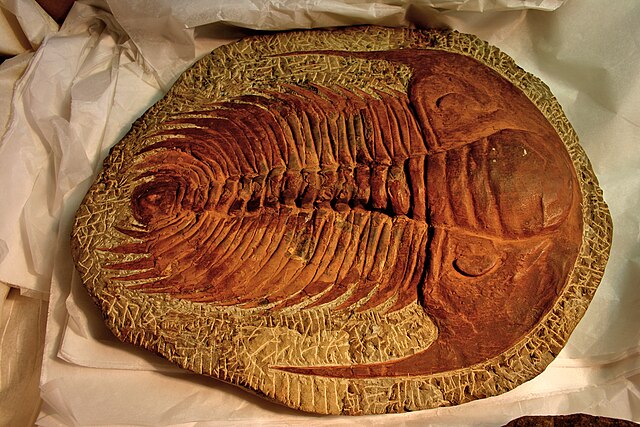Agnostida are an order of extinct arthropods which have classically been seen as a group of highly modified trilobites, though some recent research has doubted this placement. Regardless, they appear to be close relatives as part of the Artiopoda. They are present in the Lower Cambrian fossil record along with trilobites from the Redlichiida, Corynexochida, and Ptychopariida orders, and were highly diverse throughout the Cambrian. Agnostidan diversity severely declined during the Cambrian-Ordovician transition, and the last agnostidans went extinct in the Late Ordovician.
Agnostida
Trilobites are extinct marine arthropods that form the class Trilobita. Trilobites form one of the earliest known groups of arthropods. The first appearance of trilobites in the fossil record defines the base of the Atdabanian stage of the Early Cambrian period and they flourished throughout the lower Paleozoic before slipping into a long decline, when, during the Devonian, all trilobite orders except the Proetida died out. The last trilobites disappeared in the mass extinction at the end of the Permian about 251.9 million years ago. Trilobites were among the most successful of all early animals, existing in oceans for almost 270 million years, with over 22,000 species having been described.
Redlichiida, such as this Paradoxides, may represent the ancestral trilobites.
Fossil Prochuangia from the Cambrian period of Darnjal Formation, Tabas, Iran
Meroperix, from the Silurian of Wisconsin
Walliserops trifurcatus, from Jebel Oufatene mountain near Fezzou, Morocco





